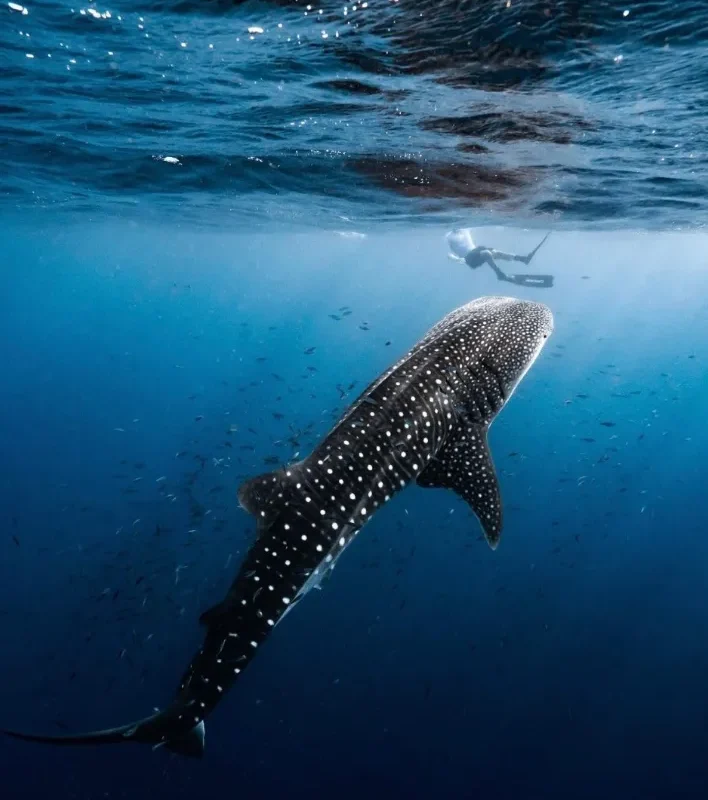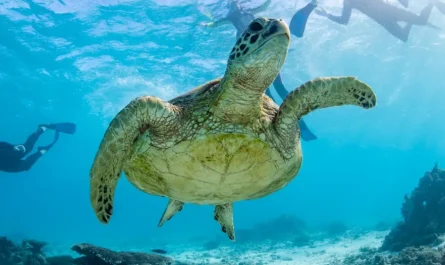Ningaloo Reef, a World Heritage site off Western Australia, is famous for its marine life. One of its most famous residents is the whale shark, the biggest fish in the ocean. Every year, the annual whale shark aggregation draws thousands of marine lovers who come to see these gentle giants up close. These individual whale sharks, with their white spots and enormity, are the main attraction for ecotourism in the area, pure magic.
Whale sharks can grow up to 12m or more in length, they are the biggest fish in the world. Despite their size they are gentle creatures, feeding on plankton and small fish. Their presence in Australian waters, particularly in the Ningaloo Marine Park has made this area a whale shark hot spot. These tours give you the chance to swim with these magnificent creatures, an experience that’s been described as life changing by many who have done it.
Why Ningaloo Reef
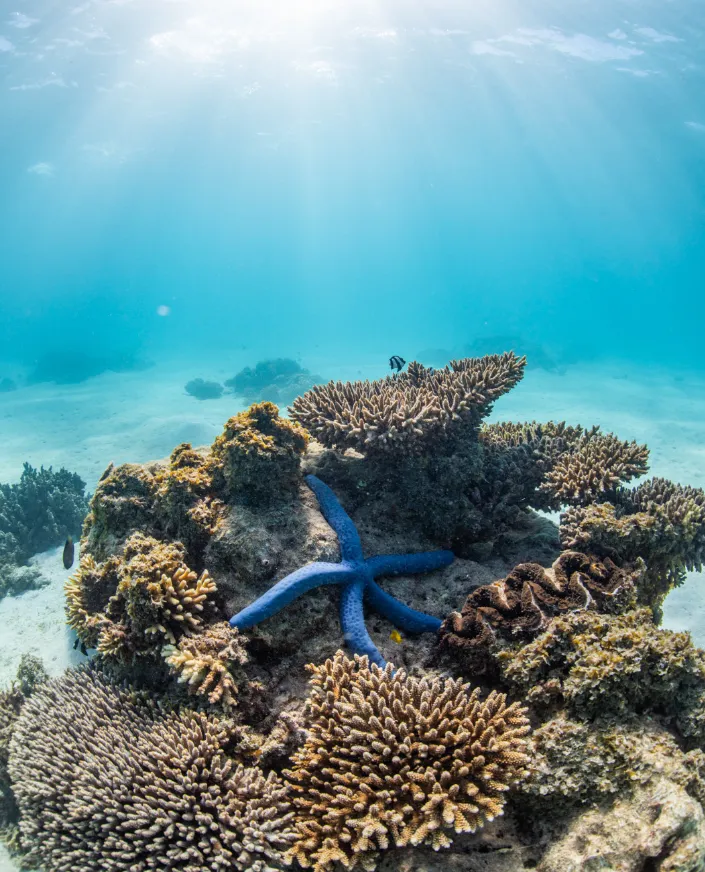
Ningaloo Reef is important for its beauty and for whale shark conservation. Whale sharks are declining in other parts of the world due to overfishing, particularly for whale shark meat and other whale shark products. Ningaloo Reef is a safe haven for these magnificent creatures, where they are protected by local and global conservation efforts.
Government departments such as the Department of Environment and Conservation and the Western Australian Department of Conservation and Land Management work with marine biologists and licensed operators to ensure the whale shark population at Ningaloo is sustainable. This includes research into their migration patterns, movement patterns and overall behaviour to better understand the ecology of these ocean giants. Satellite tags are used to track the short term movements of whale sharks, giving us valuable data on their migration.
And marine scientists studying the ecology of whale sharks have found that Ningaloo Reef is a critical feeding ground for them. The abundance of food, crab larvae and other small marine organisms is essential for the normal movement and survival of whale sharks while they are in the area.
Whale Shark Tourism
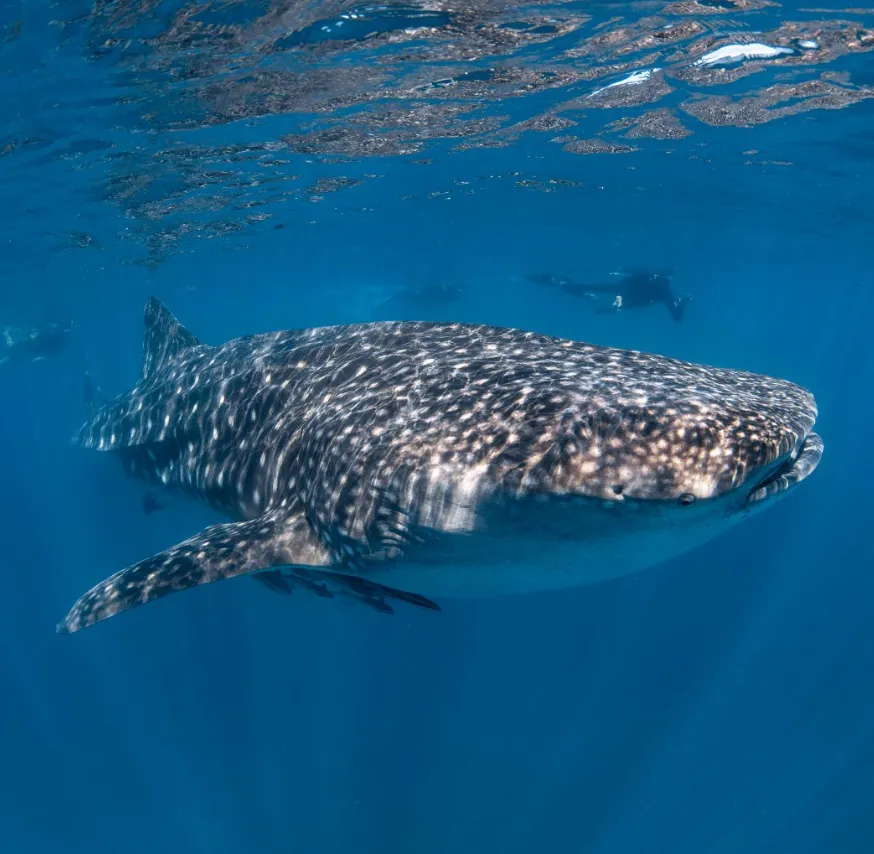
Whale shark interaction tours have turned Ningaloo Reef into an ecotourism hot spot. Commercial tour operators such as Ningaloo reef tours , Ningaloo Whaleshark Swim and Coral Bay Ecotours offer visitors the chance to snorkel with these gentle giants. But with the growing popularity of whale shark tours there is concern about the environmental impact on the sharks and their habitat.
Whale sharks are very sensitive to disturbance from tourism, especially when it’s excessive boat traffic. Boat collisions are a serious risk to these animals and have been documented in some areas. Flash photography and motorised propulsion aids can also disorient whale sharks and change their direction of travel. To mitigate these risks the authorities have strict regulations in place to ensure whale shark tours are ethical and sustainable.
Despite these challenges whale shark tourism is an important part of Ningaloo’s economy. It brings income to local communities, promotes conservation and raises awareness about the importance of protecting marine environments. Many tour operators are involved in community out-reach initiatives and community development tools that promote the importance of preserving the marine environment for future generations.
Ocean Giants
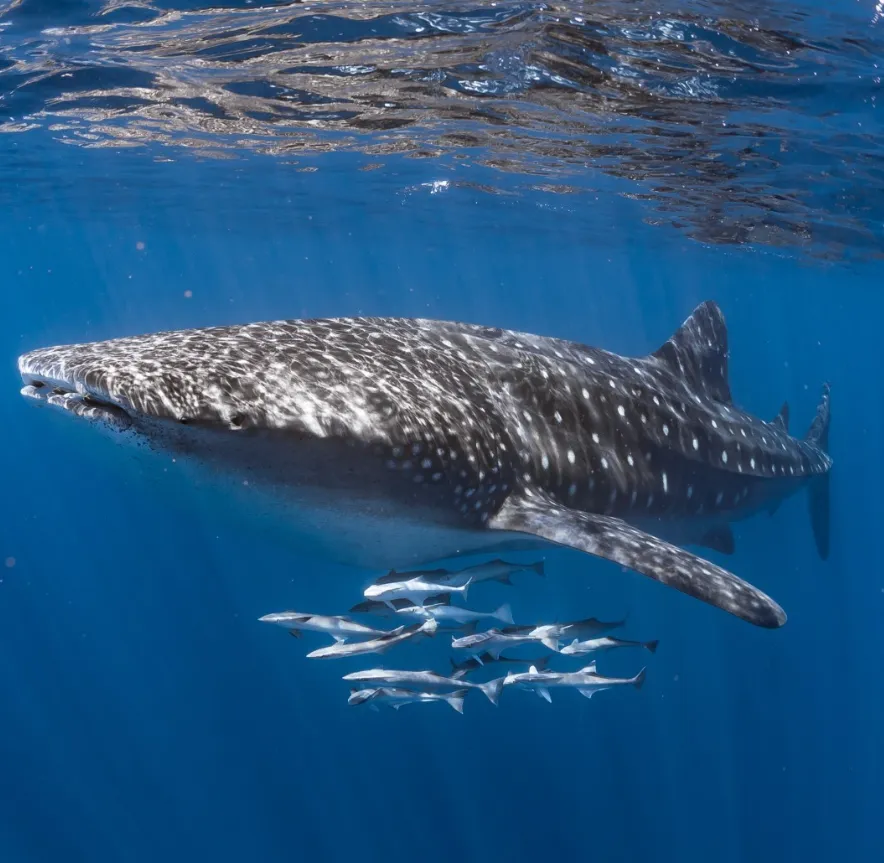
Whale sharks are amazing creatures, not just because of their size but also because of their white spots and stripes. These patterns are unique to each individual, like human fingerprints and are used by researchers to identify and track individual sharks over time. One of the organisations that is involved in this research is Ecocean Whale who run a photo-identification program to monitor whale shark sightings and movements.
Despite their size whale sharks are vulnerable to many human impacts, including pollution, climate change and marine debris. The increasing amount of marine debris in the oceans is a threat to whale sharks as they can ingest harmful materials while feeding. Protecting Ningaloo Reef’s pristine waters is key to the long term survival of these amazing creatures.
Humpback whales, manta rays and marine turtles are other iconic species that call Ningaloo home making it a destination for diving and marine exploration. Humpback whales arrive in Ningaloo’s blue waters at the same time as the whale sharks so visitors can see both species during their stay.
Whale Sharks and the Bigger Picture
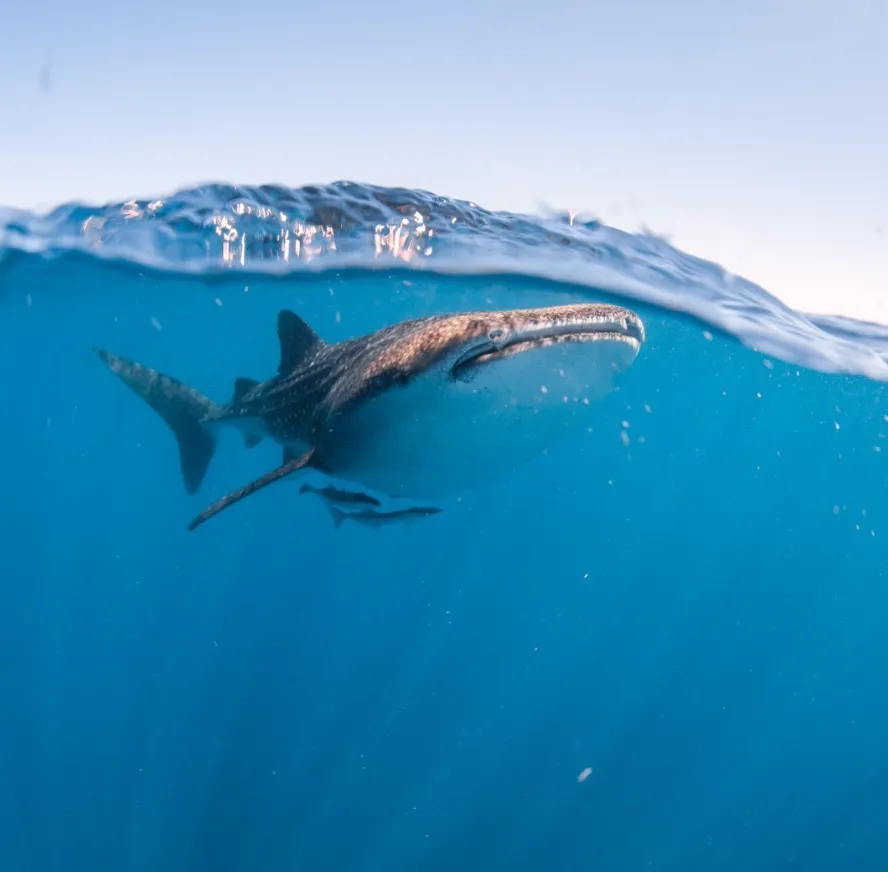
Other parts of the world, like the Maldives Whale Shark Research Program and Christmas Island, are also working to protect whale sharks. Efforts like these, along with local initiatives in Exmouth Gulf and Coral Bay, are critical to the survival of whale sharks globally.
The trade in whale shark products such as their fins, oil and whale shark meat is a major threat to their global population. But organisations and government bodies are working hard to combat illegal fishing and promote sustainable tourism as an alternative. The Environment Protection and Biodiversity Conservation Act provides additional protection for whale sharks so they can’t be exploited.
In short, Ningaloo Reef is more than just a great dive. It’s a whale shark conservation sanctuary, a marine research hub and a model for how tourism can benefit wildlife and local communities. As more and more people come to Ningaloo to see these gentle giants, we must remember to protect their habitat and their future. Whether you’re swimming with the biggest fish in the sea or just enjoying the crystal clear waters, Ningaloo Whale Shark Tours is an adventure into one of the most diverse and colourful ecosystems on the planet.
FAQ
Are whale sharks dangerous?
No, whale sharks are not aggressive and are harmless to humans. They’re known as “gentle giants” and are filter feeders, so they don’t pose a threat to divers or snorkellers.
Why are whale sharks important?
Whale sharks help maintain the health of marine ecosystems by controlling plankton populations. They’re a flagship species for conservation efforts and help raise awareness about protecting marine habitats like Ningaloo Marine Park.
What are the main threats to whale sharks?
The main threats to whale sharks are habitat degradation, marine debris, pollution, boat strikes, overfishing and the illegal trade in whale shark products like whale shark meat. These are threats to the global whale shark population which is currently listed as endangered.
What can we do to help whale sharks?
Conservation efforts are focused on protecting whale sharks through better fishing regulations, marine park management, research on their migration and behaviour and raising awareness. Ningaloo Marine Park and various government departments like the Western Australian Department of Conservation are involved in these efforts.
Why is Ningaloo Reef important for whale shark conservation?
Ningaloo Reef is a critical feeding ground for individual whale sharks and a key part of their annual aggregation. Conservation efforts in the area focus on reducing human impact, minimising boat traffic and researching whale shark behaviour to protect this iconic species.
What do whale sharks eat?
Whale sharks are filter feeders that eat plankton, small fish, and crab larvae. They swim with their mouths open and filter food from the water. They also eat tofu fish and other small organisms in the nutrient-rich waters of Ningaloo Reef.
